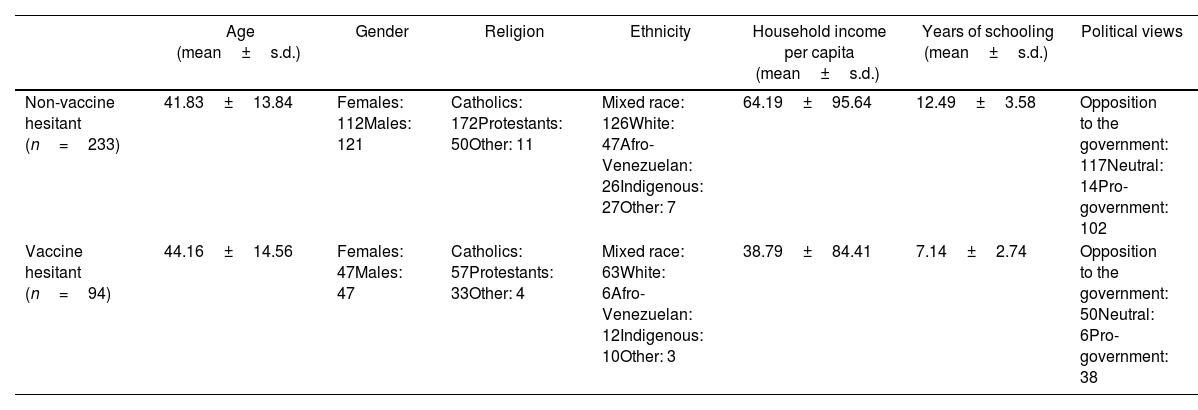
To assess if seven demographic variables (age, gender, religion, ethnicity, income, educational level, and political views) are predictive of Covid-19 vaccine hesitancy.
Material and methods327 participants completed a survey asking questions regarding each of the variables.
ResultsAge, gender and political views have no statistically significant correlation with vaccine hesitancy. Ethnicity and religion are predictive of vaccine hesitancy. Income has a weak negative correlation with Covid-19 vaccine hesitancy, and educational level has a moderate negative correlation with Covid-19 vaccine hesitancy.
ConclusionIn order to curb Covid-19 vaccine hesitancy, public health authorities in Venezuela need to focus efforts on marginalized ethnic groups, Protestants, and those with lower levels of education.
Evaluar si 7 variables demográficas (edad, género, religión, origen étnico, ingresos, nivel educativo y opiniones políticas) son predictivas del rechazo a la vacuna del Covid-19.
Material y métodosTrescientos veintisiete participantes completaron una encuesta con preguntas sobre cada una de las variables.
ResultadosLa edad, el género y las opiniones políticas no tienen una correlación estadísticamente significativa con el rechazo a la vacuna. El origen étnico y la religión predicen el rechazo a las vacunas. Los ingresos tienen una correlación negativa débil con el rechazo de la vacuna Covid-19, y el nivel educativo tiene una correlación negativa moderada con el rechazo de la vacuna Covid-19.
ConclusiónPara frenar el rechazo a la vacuna del Covid-19, las autoridades de salud pública en Venezuela deben concentrar sus esfuerzos en los grupos étnicos marginados, los protestantes y aquellos con niveles más bajos de educación.








